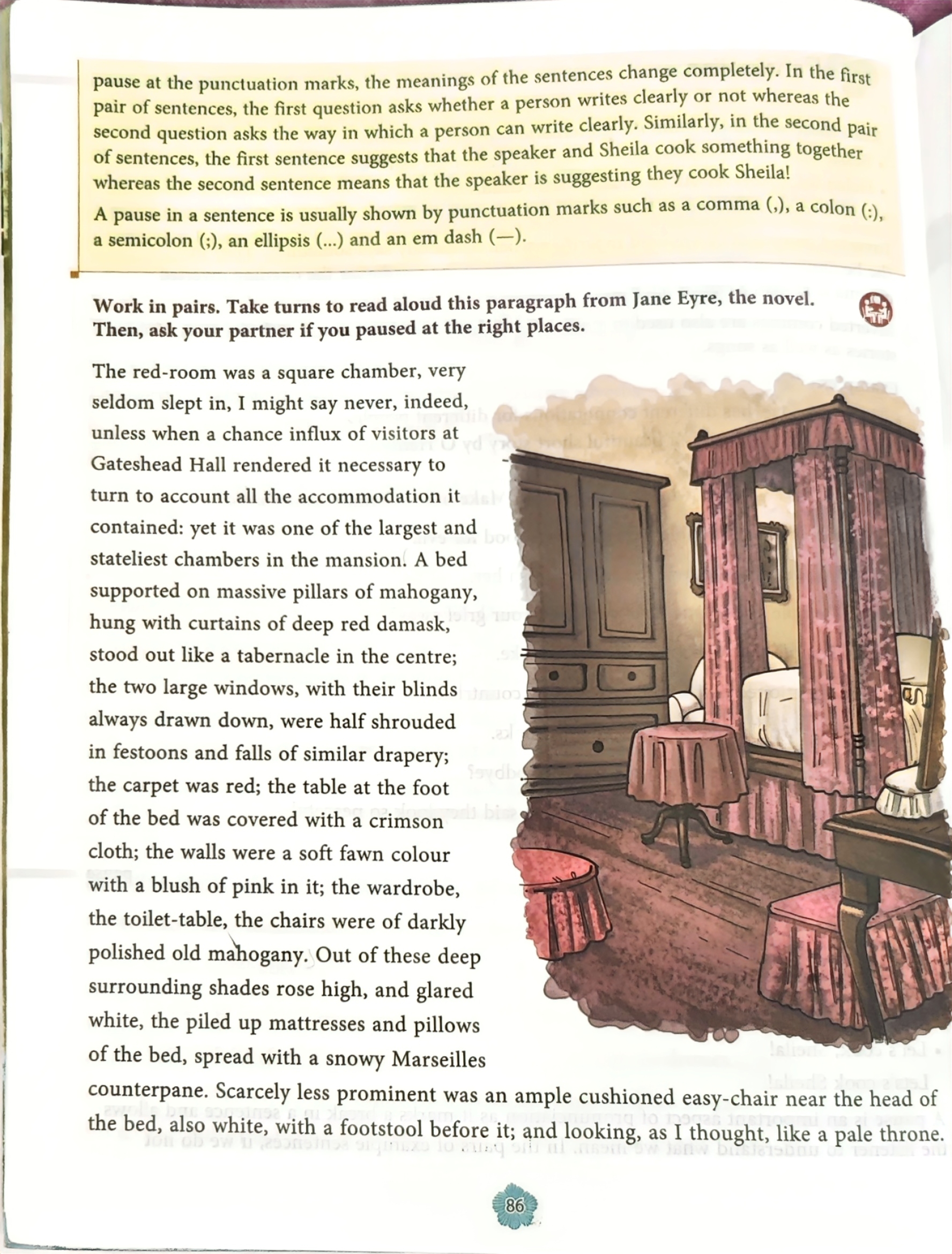Today, Max asked me to look at his descriptive writing assignment from school. He didn’t really want help. Not really. He just wanted a quick fix. A skim-and-sign-off.
But he chose the wrong parent.
He flopped beside me on the bed, reluctant. I scanned his draft and saw the usual: a decent attempt, a few bright spots, but mostly scaffolding, words and phrases repeating. It read like someone trying to finish a thing, not someone trying to say something. To show something.
I quipped, “Writing’s easy. Rewriting is the hard part. And it always takes more time than we want it to.”
That didn’t go down well.
Luckily, his book had a passage from Jane Eyre. I asked him to read each sentence out loud and then tell me what that sentence was about and how things were described. His reading was flat, each sentence dropped like a stone. I could tell he wasn’t listening to himself.
“What does that sentence say?” I asked. A shrug. “Something about... the unoccupied bedroom?”

Later that evening, I kept thinking about it — not just the parenting part, but the writing part. That kind of descriptive writing — the kind that wraps an image around you, the kind that slows you down — feels rarer these days.
Outside of fiction and the occasional well-written essay or newsletter, you don’t find sentences like that often. Even in long-form spaces like newsletters and blogs — places without social media character limits or Instagram's visual priorities — writers seem to default to shorter, punchier sentences. Shorter paragraphs. Shorter sentences. Quick hits. Fast reads. Sometimes that’s good writing. Often, it’s necessary. But something gets lost in the speed and efficiency of it all — the layering, the rhythm, the careful unfolding of an idea or a scene.
Maybe our attention spans are to blame. Or maybe we’ve been trained by character limits, previews, and scroll-friendly design to read in blinks and fragments.
I found myself wondering if I was witnessing the end of something almost medieval — the notion that a sentence could be a dwelling place rather than a thoroughfare, somewhere you might pause and unpack your thoughts like settling into a favorite armchair, letting clauses accumulate and ideas unfold in their own unhurried time, the way this very sentence insists on taking the scenic route while Max's generation has already moved on to the next notification, the next swipe, the next dopamine hit.
Quick, clean, done.
